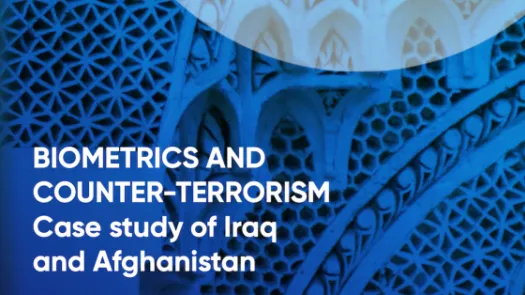Briefing to the UN Counter-Terrorism Executive Directorate on biometric data

Identification system across the world increasingly rely on biometric data. In the context of border management, security and law enforcement, biometric data can play an important role in supporting the investigation and prevention of acts of terrorism.
This is clearly reflected in UN Security Council resolutions on counter- terrorism. Notably, Resolution 2396 (2017) the UN Security Council decided that states shall develop and implement systems to collect and share biometrics data for purposes of counter-terrorism. Similarly, the 2018 Addenda to the Madrid Guiding Principles note the usefulness of biometrics data.
However, biometric data is particularly sensitive and revealing of individual’s characteristics and identity. As such it has the potential to be gravely abused.1 Identification system relying on biometric data are also vulnerable to security breaches, whose consequences for the individuals concerned, and for the overall security of society are extremely grave.
The UN 2018 Addenda to the 2015 Madrid Guiding Principles agree that “biometric systems are a legitimate tool for the identification of terrorist suspects, but the expansive technical scope and rapid development of this technology deserves greater attention as it relates to the protection of human rights (including, but not limited to, the right to be free from arbitrary or unlawful interference with privacy).”
This briefing aims to map out some of the implications of the adoption of identification systems based on biometrics.



